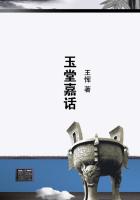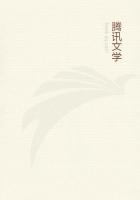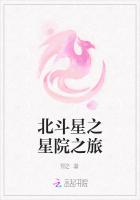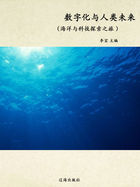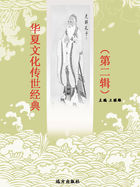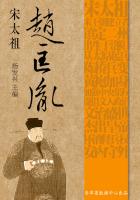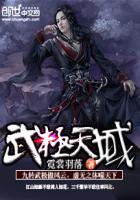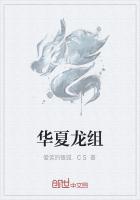[13] Vaugelas, ibid.. "Although we may have eliminated one-half of his phrases and terms we nevertheless obtain in the other half all the riches of which we boast and of which we make a display." - Compare together a lexicon of two or three writers of the sixteenth century and one of two or three writers of the seventeenth. A brief statement of the results of the comparison is here given. Let any one, with pen in hand, note the differences on a hundred pages of any of these texts, and he will be surprised at it. Take, for examples, two writers of the same category, and of secondary grade, Charron and Nicole.
[14] For instance, in the article "Ignorance," in the "Dict.
Philosophique."
[15] La Harpe, "Cours de Littérature," ed. Didot. II. 142.
[16] A battle-axe used by the Franks. - TR.
[17] I cite an example haphazard from the "Optimiste" (1788), by Colin d'Harleville. In a certain description, "The scene represents a bosquet filled with odoriferous trees." - The classic spirit rebels against stating the species of tree, whether lilacs, lindens or hawthorns. - In paintings of landscapes of this era we have the same thing, the trees being generalized, - of no known species.
[18] This evolution is seen today as well, television having the same effect upon its actors as the 18th century drawing-room. (SR.)[19] See in the "Lycée," by la Harpe, after the analysis of each piece, his remarks on detail in style.
[20] The omission of the pronouns, I, he, we, you, they, the article the, and of the verb, especially the verb to be.-- Any page of Rabelais, Amyot or Montaigne, suffices to show how numerous and various were the transpositions.
[21] Vaugelas, ibid . "No language is more inimical to ambiguities and every species of obscurity."[22] See the principal romances of the seventeenth century, the "Roman Bourgeois," by Furetière, the "Princess de Clèves," by Madame de Lafayette, the "Clélie," by Mme. de Scudéry, and even Scarron's "Roman Comique." - See Balzac's letters , and those of Voiture and their correspondents, the "Récit des grands jours d'Auvergne," by Fléchier, etc. On the oratorical peculiarities of this style cf.
Sainte-Beuve, "Port-Royal," 2nd ed. I. 515.
[23] Voltaire, 'Esay sur le poème épique', "Our nation, regarded by strangers as superficial is, with the pen in its hand, the wisest of all. Method is the dominant quality of all our writers."[24] Milton's works are built up with 8,000. "Shakespeare, who displayed a greater variety of expression than probably any writer in any language, produced all his plays with about 15,000 words and the Old Testament says all it has to say with 5,642 words." (Max Müller, "Lectures on the Science of language," I. 309.) - It would be interesting to place alongside of this Racine's restricted vocabulary.
That of Mme. de Scudery is extremely limited. In the best romance of the XVIIth century, the "Princesse de Clèves," the number of words is reduced to the minimum. The Dictionary of the old French Academy contains 29,712 words; the Greek Thesaurus, by H. Estienne, contains about 150,000.
[25] Compare together the translations of the Bible made by de Sacy and Luther; those of Homer by Dacier, Bitaubé and Lecomte de Lisle;those of Herodotus, by Larcher and Courrier, the popular tales of Perrault and those by Grimm, etc.
[26] See the "Discours académique," by Racine, on the reception of Thomas Corneille: "In this chaos of dramatic poetry your illustrious brother brought Reason on the stage, but Reason associated with all the pomp and the ornamentation our language is capable of."[27] Voltaire, "Essay sur le poème épique," 290. "It must be admitted that a Frenchman has more difficulty in writing an epic poem than anybody else. . . . Dare I confess it? Our own is the least poetic of all polished nations. The works in verse the most highly esteemed in France are those of the drama, which must be written in a familiar style approaching conversation."[28] Except in "Pensées," by Pascal, a few notes dotted down by a morbidly exalted Christian, and which certainly, in the perfect work, would not have been allowed to remain as they are.
[29] See in the Cabinet of Engravings the theatrical costumes of the middle of the XVIIIth century. - Nothing could be more opposed to the spirit of the classic drama than the parts of Esther and Brittannicus, as they are played nowadays, in the accurate costumes and with scenery derived from late discoveries at Pompeii or Nineveh.

